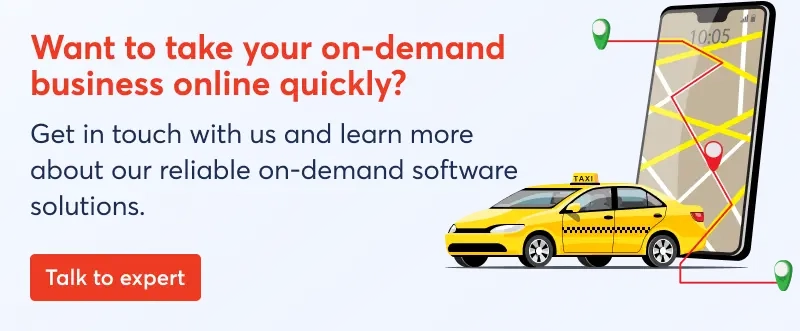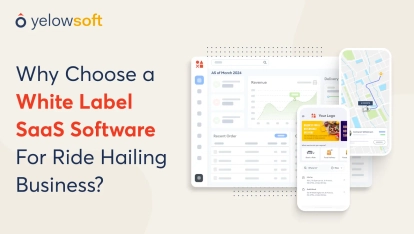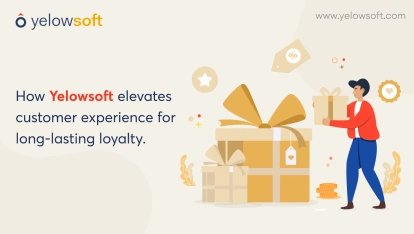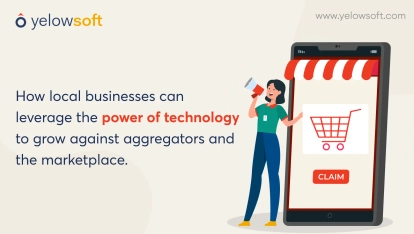Are you in the on-demand industry and offering your passengers various types of taxi transfer services on-demand?
Are you struggling to choose the right taxi management software solution (SaaS, in-house, or clone) which aligns with your business needs, budget, and long-term goals?
Do you find many choices in the software that are overwhelming you?
If your answer is yes to all the above questions then you may fear making a costly mistake of choosing the wrong software solution. The wrong selection can lead to wasted resources, missed opportunities, and potential business failure.
This concern turns into anxiety which further multiplies by the rapidly changing technology landscape.
You have landed at the right place if you are not just looking for a comparison between the three, but also seeking the right solution that can reassure your investment will be secure and future-proof.
In this blog, you will discover the detailed and real differences between SaaS, In-house, and clone taxi dispatch software.
By the end of this blog, you will be able to decide what will be the best fit for your business so you can move forward in the business.
But before you dive into the main course of the blog, first know the market trends and statistics of all three.
Some significant statistics you don’t know
-
The global Software as a Service (SaaS) market size was valued at USD 273.55 billion in 2023 and is projected to grow to USD 1,228.87 billion by 2032. (Source - verifiedmarketreports)
-
The SaaS industry has increased in size by around 500% over the past 7 years.
-
As per Harvey Nash, SaaS is considered the most important technology in business success.
These strong stats manifest that, SaaS is playing a vital role in the growth of businesses.
Whereas, the other two software models in-house or custom taxi software and the clone or Uber-clone app development contribute to the market but not as much as SaaS.
Now let us understand each of the software types in detail below.
SaaS (Software as a Service)
SaaS is a cloud-based software delivery model where applications are hosted by a service provider and made available to customers over the Internet.
Users can access it through a web browser instead of purchasing and installing software on individual devices.
Moreover, it has become a common delivery model and has emerged as one of the most prominent ways that on-demand businesses choose a software product.
Other businesses use it for functions such as;
- Taxi transfer business management
- CRM
- Accounting
- Payroll processing
- Management information
- Enterprise resource planning
- Invoicing
- Human resource management, etc.

In-house or custom software
In-house or custom software means developing your own software by hiring an in-house team of software developers with specific features and functionalities that solve only your problems.
For custom software development, you can also outsource the development job to a third-party development company on a contract basis or hourly rate.
However, you will have to perform some necessary steps like;
- Setup a huge infrastructure
- Hire dedicated resources
- Keep them on salary or minimum wage
- Give them perks
- Invest in in-house servers and dedicated experts
- Do consistent spending on maintaining the software and infrastructure and more…

Clone software
Clone software means developing a copy or replicating the whole app with the features and functionalities of a popular app.
For instance, many of you may be looking for a Lyft clone or Careem clone app. The clone app could be pre-built or you can ask the provider to build it.
However, these clone software are often ready to use and can be easily customized.
Moreover, you can also white label the software on your brand name and launch it as your own software in the market and the Play Store.
And if you are looking for an Uber clone app or any other clone app for your taxi business, you can always reach out to Yelowsoft.
Now that you know the basic difference between all the 3. Let’s discover them in-depth below with a clear and concise comparison table.
| Criteria | SaaS (Software as a Service) | In-house or custom software | Clone software |
|---|---|---|---|
| Costing and finance | Affordable and low cost. Typically based on a subscription model. No large upfront investment is required. | Highly expensive due to complete in-house project Requires significant upfront investment and ongoing maintenance costs. | Affordable and economical Generally lower upfront costs compared to in-house solutions. It may require future investments for customization or scaling. |
| Time to launch in the market | You can launch it quickly as the software is already developed and ready to use. Deployment time is minimal. | Will take a long duration of time like months or even years. As it includes the custom development process, testing, and deployment. | Clone software can be launched relatively quickly to custom software. However, customization or integration requirements may extend the timeline. |
| Source Code Ownership | No source code ownership is given The software is hosted and maintained by the provider and you get access to use it. | You own the source code ownership completely as you manage the software, server, developers, etc. This gives you complete control over the software’s functionality and future developments. | Here, you may or may not get the source-code ownership. However, you may get the power to ask for customization at some level. Majorly, clone app providers do not give the source code ownership if it’s built into the cloud technology. |
| Business Consulting | Business and software-related consulting is often included as part of the service. Prior consulting helps you to optimize the software as per your needs. | Very limited domain-related consulting is available. The focus is primarily on development. Any consulting will typically require additional resources or expertise. | At some level, consulting is provided. While you may not get what you’ll get for SaaS. If the clone is SaaS-based, you may get a similar kind of support and consulting. |
| Staffing and expertise | Highly skilled with expertise in a specific domain. The provider offers specialized knowledge and support to ensure the software meets industry standards. | Vast knowledge and skills are required but may have limited domain expertise. You must employ or contract developers with the necessary skills for the project. This will add to the overall cost. | Clone software providers typically have experience with the specific software they are cloning. However, they may not offer the same depth of expertise as a dedicated SaaS provider. |
| Customization of features | Varies on the SaaS provider. Some provide limited and some offer on-demand customization of the features. However, SaaS platforms have become more flexible, you may not get the same level of customization as in-house solutions. | You can have the complete customization of the solution. In-house software is tailored to meet your exact needs. You can get unique features and functionalities. | Can be customized up to a certain level. Clone software may have inherent limitations that restrict full customization. |
| Support & Maintenance | Complete round-the-clock tech support provided by the SaaS provider. You will benefit from regular updates, security patches, and continuous improvements. Plus, you do not have to manage these internally. | As you are building the software, you will be solely responsible for all support and maintenance. For proper support and maintenance, you will require dedicated IT staff or an outsourcing party. | Tech support is available up to some level. Clone software providers typically offer initial support. But ongoing maintenance may require additional contracts or internal resources. |
| Scalability | Highly scalable. SaaS platforms can easily scale as your business grows. You can add more users, features, or storage as needed. | High scalability challenges. FAs the business grows, scaling in-house software can be complex and costly. It requires additional development and infrastructure investment. | Moderate scalability. Clone software may offer basic scalability options. However, significant growth may require additional customization or transitioning to a different solution. |
| Security | Data is stored on the provider’s cloud servers to which you have the access. It minimizes the security concerns and you get complete access to your customer data. | Since the software is developed and maintained in-house, you can implement stringent security measures tailored to your specific needs. | Clone software may lack advanced security features. This makes it essential to assess the provider's security protocols or invest in additional security measures. |
| Maintenance and responsibility | The SaaS software provider handles all maintenance, including updates and security patches. You can focus on your core operations without worrying about software upkeep. | You are responsible for the software maintenance, including updates, security, and bug fixes. This requires a dedicated IT team or external support. It further adds an added operational burden. | Clone software providers may offer initial maintenance support. However, ongoing maintenance and updates often fall on you. This will require additional resources. |
| Integration with other systems | Seamless integration with third-party tools and systems is often a key feature of SaaS platforms. This makes it ideal for you if you use variety of software solutions to enhance business performance. | In-house software can be fully integrated with existing systems and processes. This creates a cohesive operational environment. At the same time, this can be complex and resource-intensive. | Clone software providers may offer some integration capabilities. However, these are often less extensive than those available with SaaS or in-house solutions. It potentially requires additional customization. |
| Long-term investment | Recurring subscription fees mean ongoing costs. However, you will benefit from continuous updates and improvements without needing to reinvest in new software. | Significant massive upfront investment with long-term benefits. Once developed, in-house software does not require ongoing subscription fees. But, maintenance and updates must be managed internally. | Cost-effective initial investment, but long-term flexibility may be limited. You may need to invest in new solutions or significant upgrades as their needs evolve. This will potentially increase overall costs over time. |
| Best suited for | Startups and SMEs that need a cost-effective, scalable, and quickly deployable solution with minimal IT overhead. | Large enterprises or businesses with specific, complex needs that require full control and customization. Companies with the resources to invest in long-term software development and maintenance. | Startups or businesses looking to replicate proven business models with a quick and affordable solution. Those needing a basic, cost-effective solution with moderate customization and scalability options. |
Finally, here is a detailed comparison that you were looking for. Every word reflects the experience of the expert. Count on it and decide the best for your business.
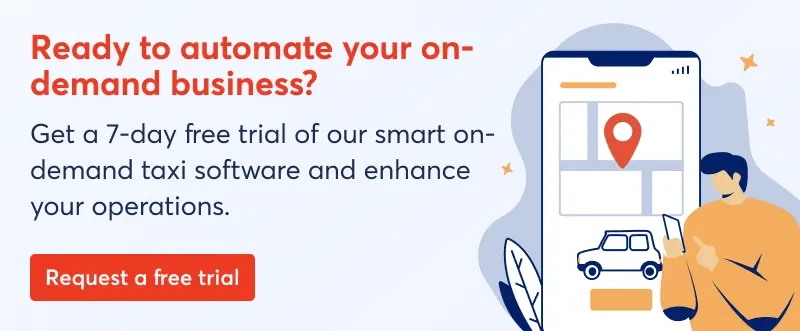
You now know the overall difference between all the 3 types of software. But the challenge is still the same;
Which among the 3 is the best? To answer this, our experts have contributed their advice. Keep reading to get the answer.
Which of the software should you choose for your on-demand business?
Above you have read the overview and the detailed comparison for all three types. Out of which, SaaS stands out with more benefits than the two.
SaaS-based white-label applications are perfect for your on-demand business and or startup. If you look at the comparison with different models, the SaaS software helps in;
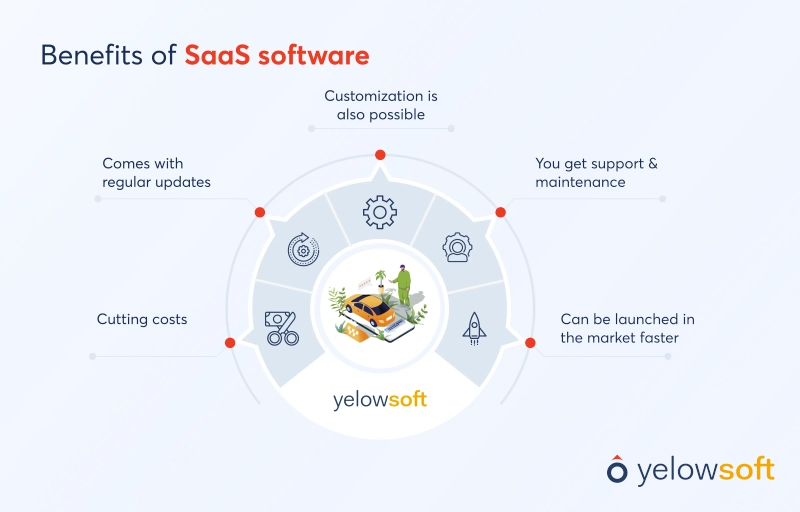
- Cutting costs
- Comes with regular updates
- Customization is also possible
- You get support & maintenance
- Can be launched in the market faster
For on-demand startups, it is essential to go for a SaaS-based software model for their businesses as the on-demand industry is revolutionizing.
They have less funding and higher risk which is why a cost-effective model like SaaS software can allow them to launch their own software faster is the best alternative.
SaaS is the best option for all types and sizes of businesses to take the business online with a minimal investment.
Conclusion
When choosing between SaaS, In-House, or Clone software, you must consider your unique needs, budget, and growth plans.
SaaS offers a cost-effective, scalable, and low-maintenance solution that is ideal for you if you are seeking quick deployment and flexibility.
On the other hand, In-house software provides complete control and customization. It is best suited for large enterprises with specific requirements and the resources to manage long-term development.
Whereas, the clone software offers a quick and affordable way to enter the market. However, it may require future investments in customization or scalability.
Each option has its strengths and weaknesses. Choose the best based on your specific goals and the constraints of the business.
